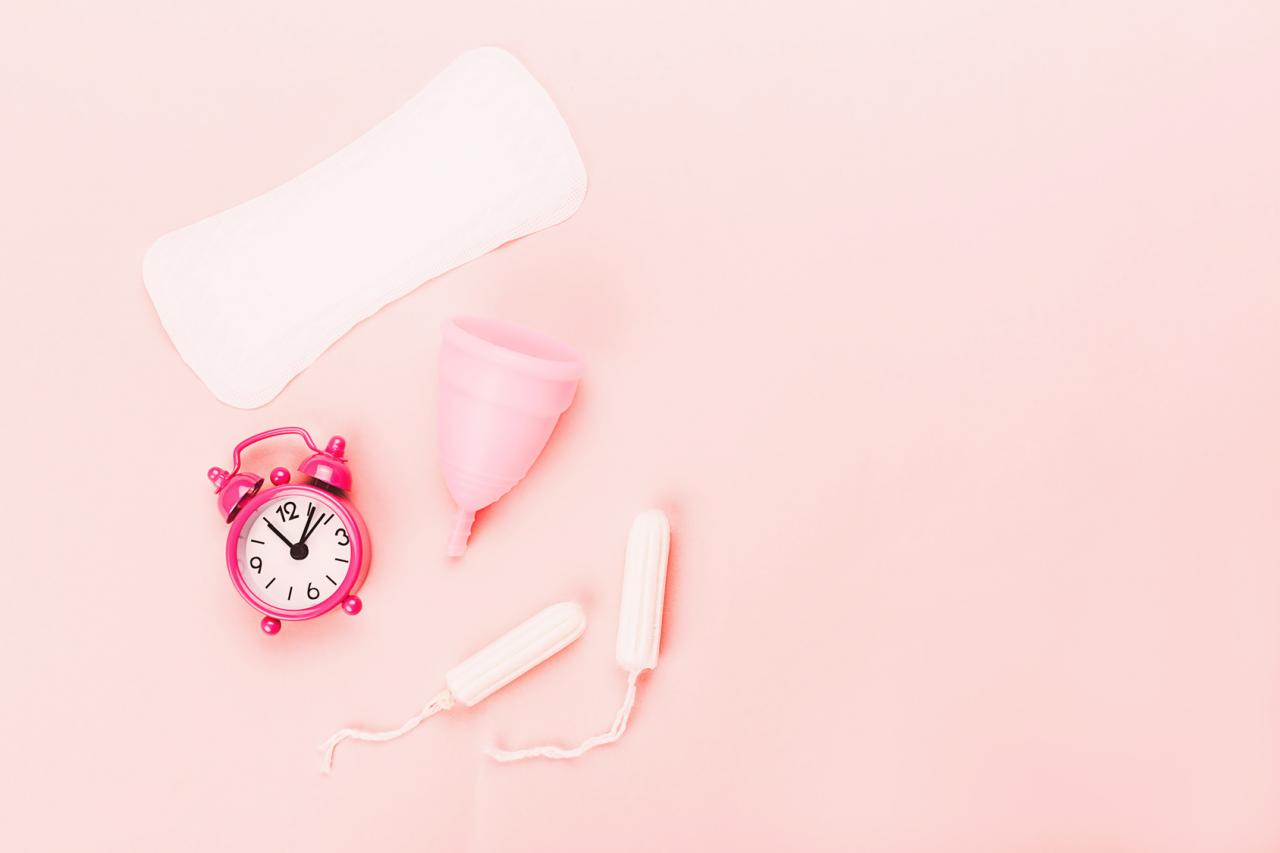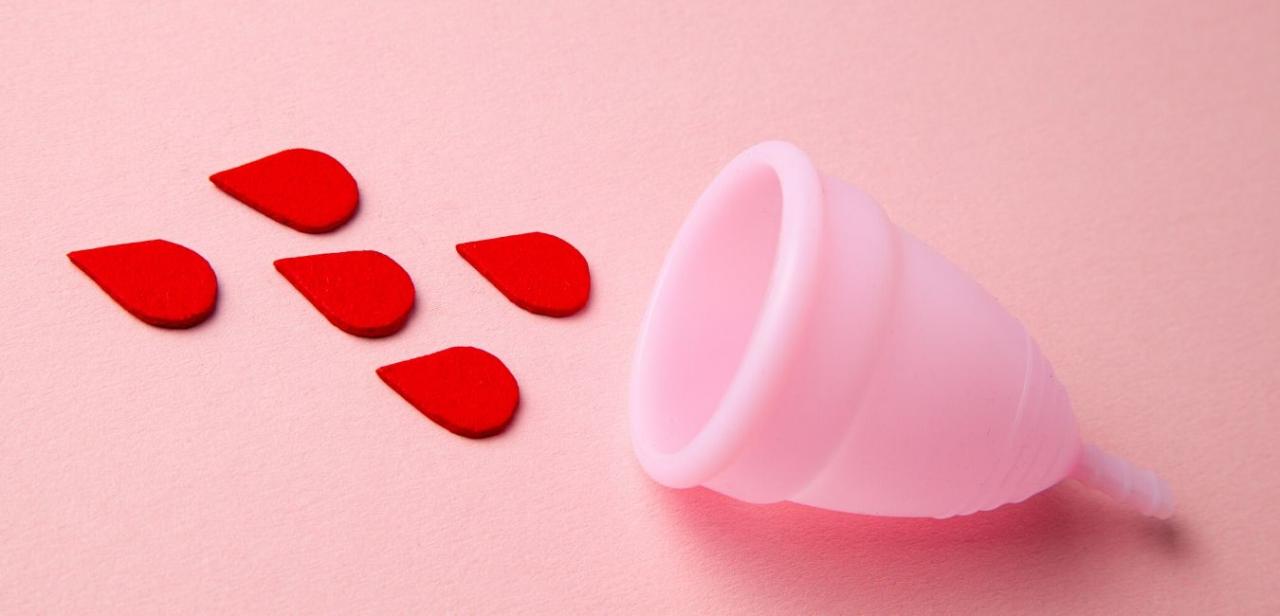 Andres Rodriguez/PhotoSpin
Andres Rodriguez/PhotoSpin
The menstrual cycle occurs in all females from the onset to puberty (average age 11 or 12 years) to the menopause in middle age (average age between 45-55). The lining of the uterus is shed via vaginal bleeding when a girl or woman has not conceived a pregnancy.
The menstrual period lasts between two days and seven days, usually occurring once every 28 days, although anything from once every 24 days to once every 35 days is considered normal.
If you are having a period more than once every 24 days, it is considered an irregular cycle.
Having a period once every two weeks, or twice a month is abnormal and you should see your doctor because you may become anemic if you are having very frequent periods. They are sometimes a sign of infection or other medical problem that would need treatment.
Reasons for a period every two weeks could be:
• Dramatic weight loss or gain -- This changes the hormones in the body and these are responsible for directing when the period will start.
• Excessive exercise -- This too disrupts hormones.
• Stress -- Exams, family argument, financial worries, divorce, even a holiday can cause a temporary change in your menstrual cycle.
• Illness and/or medications -- Some medications can affect your cycle. Talk to your doctor about altering or stopping your medication if you think this is happening.
• Uterine problems such as polyps, cysts, fibroids or tumors (either benign or cancerous).
• Sexually transmitted infections -- These can cause bleeding in between periods which can be mistaken for a period.
• Thyroid problems -- Thyroid disease could cause a thickening of the uterine lining, resulting in more bleeding than normal.
• Reactions to contraceptive methods -- Sometimes the pill, depo provera injections or the copper-only IUD can result in a change in your cycle.
~ The pill and IUD can make you bleed in between periods, known as "breakthrough bleeding" and this may be mistaken for a period.
~ The IUD can also make your periods heavier.
~ The depo-provera injection can make your cycle irregular, however, it often stops your period altogether instead of making it more frequent.
~ Sometimes changing or stopping your method of contraception can cause a sudden drop in hormones and this can result in a change to your cycle.
• Onset of menopause -- In women aged 45 and over, having periods every two weeks can be a sign that you are about to go through menopause. It can be a sign of ovulation beginning to shut down. If you are under 45, having irregular periods in addition to other symptoms commonly associated with menopause, may signal premature ovarian failure.
Treatment
Sometimes treatment is not necessary, for instance, if the disruption in cycle is due to stress, weight loss or gain, or illness, it may be temporary and may correct itself in time.
However, to rule out other possibilities your doctor will perform a pelvic examination. Your doctor may also take a sample of the uterine lining as well as doing an ultrasound scan to see if there are any obstructions in the uterus, such as fibroids.
If any obstructions are found, you can be referred for surgery to have them removed. If any cancer is found, you will be referred to an oncologist who will plan your care with you.
Sexually transmitted infections can be treated with antibiotics (and the use of condoms to prevent further infections). Your partner may have to be treated as well.
If the problem is caused by a contraceptive device or medication, this can usually be changed to stop the problem.
Heavy and/or frequent periods can sometimes be controlled by certain brands of the pill. If you find they are really disrupting your life, for instance, you are bleeding through your clothes, have to miss work days and can’t plan your holidays, this may be an option depending on your medical history.
Hormone treatment could also be given in this scenario, if you have thyroid disease or if you are starting menopause.
Sources:
Periods, Heavy. NHS Choices. Web. 26 May 2012. http://www.nhs.uk/conditions/periods-heavy/pages/introduction.aspx
Heavy Periods (Menorrhagia). WebMD. Retrieved May 27, 2012.
http://women.webmd.com/guide/heavy-period-causes-treatments
Top Ten Causes of Heavy Menstrual Bleeding. About.com Women's health. Retrieved May 27, 2012. http://womenshealth.about.com/od/abnormalbleeding/a/causemenorrhagi.htm
Irregular Periods Every Two Weeks, 34 Menopause Symptoms. Web. 26 May 2012.
http://www.34-menopause-symptoms.com/irregular-periods/articles/irregular-periods-every-two-weeks.htm
Premature Ovarian Failure, National Insititute for Child Health and Human Development. Web. 26 May 2012. http://www.nichd.nih.gov/health/topics/Premature_Ovarian_Failure.cfm
Joanna is a freelance health writer for The Mother magazine and Suite 101 with a column on infertility, http://infertility.suite101.com/ She is the mother of five children and practices natural childbirth, delayed cord clamping, full term breastfeeding and organic food diet.
Reviewed May 28, 2012
by Michele Blacksberg RN
Edited by Jody Smith






Add a Comment221 Comments
Hello Anonymous,
That would indicate a very short menstrual cycle of about 21 days. How long is your normal menstrual cycle? Has this ever happened before?
Regards,
July 27, 2016 - 8:52amMaryann
This Comment
Hi i am 28 years old i have my monthly period regularly but this month i got twice my period just finish lastweek but now i got spotting again...it is normal?
July 14, 2016 - 9:06pmThis Comment
Hello Anonymous,
No. This is not normal for a 28 year old woman. Especially since you have had a regular menstrual cycle up until now. Consider speaking with your gynecologist.
Keep us updated,
July 15, 2016 - 8:11amMaryann
This Comment
Hi.. I am 24. I used to have excessive pain during periods and one in every year my periods used to skip. So i had ultrasound of my abdominal region and some cysts were found. So my docter gave me some hormone tablets (birth control ones). I have been taking it for a year now. Now this month after periods i hav not taken the tabs and suddenly i'm having a second period! I am very scared since this never happened before. I would like to know, whether this cyst and hormone tabs can interfere in conceiving later? Are these safe?
July 7, 2016 - 11:08pmThis Comment
Hello Anonymous,
Contact your gynecologist, who knows the extent of your cyst and the specific birth control pill prescribed. Your physician can tell you why you had a second period and if the cyst will impact your ability to conceive in the future.
Regards,
July 8, 2016 - 9:31amMaryann
This Comment
Hii..gd mrng..my prblm from my mature onwards my monthly is irregular ..means for every 3 to 4 months..then I consult doctor she seen all my reports regarding my Harmon's releasing for me thyroid prblm is their and abdomen scanning also done in that reports they mention bilateral polystic over in chnges.. so she prescribe the tablets I.e ginette35 and injection placentitis. ..I used those tablets for 4 months then I consult her she chned tablets..she prescribed yamini at that time for 3 months..duration finished but I am nt in that city so I changed on other doctor then she prescribed Diane tblts..now I leave all this in this month I did nt take any tblts ..after my monthly with in 15 days ..some bleeding came I want to know why it happens
July 6, 2016 - 10:21pmThis Comment
Hello Anonymous,
Were you diagnosed with polycystic ovary syndrome (PCOS)?
Women with PCOS may have enlarged ovaries that contain small collections of fluid — called follicles — located in each ovary as seen during an ultrasound exam.
Infrequent or prolonged menstrual periods, excess hair growth, acne, and obesity can all occur in women with polycystic ovary syndrome.
What type of thyroid gland problem do you have? Is it hyperthyroidism (an overactive thyroid gland) or hypothyroidism (an underactive thyroid gland)?
Combination birth control pills are often prescribed to regulate the menstrual cycle.
Ginette 35 tablets contain a combination of ethinyloestradiol, a synthetic oestrogen and cyproterone acetate, an antiandrogen which work together to reverse the effects of too much androgen, like acne and hirsutism, while acting as a contraceptive.
Ginette 35 tablets can also be used for the treatment of polycystic ovary syndrome, which is also caused by excess androgen and is usually accompanied by acne and hirsutism.
Anonymous, I am not familiar with placentitis as an injectable drug.
Diane-35 ED tablets contain 35 micrograms of ethinyloestradiol and were probably prescribed to treat PCOS.
Why did you stop taking the pills?
If you have any concerns about how you are responding to the pills and how it is affecting your menstrual cycle, please speak with your current physician.
Regards,
July 7, 2016 - 8:21amMaryann
This Comment
I'm 17 and I hadn't gotten my period in over 2 years so I went to the gyno and got put on birth control. Now it seems like I get my period every 2 weeks (I've been on the pill for about three/four months daily now) and my mom said it might be my period just catching up for lost time or something but idk. Could this be something serious?
June 15, 2016 - 11:09amThis Comment
Hi Anonymous,
Please speak with your gynecologist about this. You may need your prescription switched. Bleeding every two weeks puts you at risk for iron deficiency anemia. If this is allowed to go on, blood loss from prolonged bleeding can be serious.
Better to talk with your doctor.
June 16, 2016 - 8:57amMaryann
This Comment
Hi I am 31 years old now and its 5 months now I am having a regular menstration again....I have this irregular menstration If I dont drink contraceptive and since I am abroad now so I stop drinking then I don't have period in every two months now...twice is happen for five months...what will I do?? Please give me some idea
May 6, 2016 - 1:20pmThis Comment